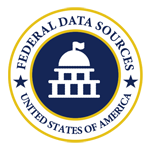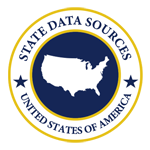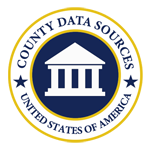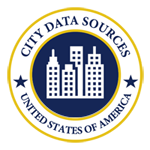Alabama Phone Numbers
Alabama has approximately 6.5 million active phone numbers. Cell phones make up 5.5 million, while traditional landlines have nearly disappeared with just 212,000 connections. VoIP services account for about 737,000 numbers.
When you search an Alabama phone number, it's most likely a cell phone. Cell numbers typically have less public information available than older landline numbers. The shift away from landlines means newer phone numbers are typically harder to trace than older landline numbers that had more public information available.
Alabama Voice Subscriptions (in thousands):
| Service Type |
June 2023 |
Dec 2023 |
June 2024 |
| Mobile telephony |
5,470 |
5,548 |
5,545 |
| Local exchange telephone service |
272 |
251 |
212 |
| VoIP subscriptions |
726 |
720 |
737 |
| Total |
6,468 |
6,519 |
6,494 |
Source: FCC Voice Telephone Services Report
Alabama's mobile phone market is dominated by three major national carriers: AT&T, Verizon and T-Mobile. These companies service the vast majority of the state's 5.5 million wireless subscriptions.
Alabama Area Codes Reverse Lookup
Every Alabama phone number consists of three parts: the three-digit Area Code, the three-digit Prefix Code (also known as the exchange or central office code), and the final four-digit line number. While the area code narrows down the location to a large region, the prefix code can often specify the original city or town where the number was registered. Alabama uses 4 primary area codes and 2 overlay codes:

Area Codes 205/659
Location: Area codes 205 and 659 serve central Alabama's economic hub. This includes the major cities of Birmingham, Tuscaloosa, Hoover, and Vestavia Hills. It covers all or part of Jefferson County, Shelby County, and Tuscaloosa County.
Common Callers: Healthcare systems (UAB Medicine, Brookwood Baptist Health), financial institutions, University of Alabama (Tuscaloosa), manufacturing companies, and corporate headquarters throughout the Birmingham metro area.
Common Spam and Scam Calls: High volume of spoofed Birmingham numbers used in tech support scams and IRS/tax fraud schemes. Scammers exploit the area's business reputation to appear legitimate.
Lookup Tip: Many corporate headquarters use 205 prefixes. Verify business legitimacy through the Alabama Secretary of State's business entity database before sharing sensitive information.
Area Code 251
Location: Area code 251 serves Alabama's only coastal region including Mobile, Daphne, Fairhope, and Gulf Shores along the Gulf of Mexico. Its covers all Mobile County and Baldwin County.
Common Callers: Port of Mobile businesses, shipbuilding companies (Austal USA), aerospace contractors, tourism and hospitality businesses, healthcare providers (USA Health, Mobile Infirmary), and Gulf Coast resorts.
Common Spam and Scam Calls: Vacation rental scams, timeshare fraud, and fake resort promotions targeting tourists. Scammers exploit the region's tourism industry to create urgency around "limited-time" vacation deals.
Lookup Tip: Legitimate businesses concentrate along the I-10 corridor and coastal areas. Verify tourism-related offers through official websites and never wire money for vacation rentals without thorough vetting.
Area Codes 256/938
Location: Area codes 256 and 938 serve northern Alabama's Tennessee Valley region including Huntsville, Decatur, Madison, and Florence/Muscle Shoals. The largest population of numbers with these codes can be found within Madison County, Limestone County, and Morgan County.
Common Callers: Aerospace and defense contractors (Boeing, Lockheed Martin, Northrop Grumman), NASA Marshall Space Flight Center, Redstone Arsenal personnel, technology companies, University of Alabama Huntsville, and Tennessee Valley Authority.
Common Spam and Scam Calls: Government and military impersonation scams targeting defense contractor employees and their families. Fake security clearance threats, bogus defense contract offers, and employment verification scams.
Lookup Tip: High concentration of legitimate tech and aerospace companies. Verify employers through official company websites directly, never through links in emails or texts. Real defense contractors never request personal information via unsolicited calls.
Area Code 334
Location: Area code 334 serves Alabama's state capital and southeastern "Wiregrass" agricultural region including Montgomery, Dothan, Auburn, Opelika, and Enterprise. The primary counties covered by the 334 area code are Montgomery County, Lee County , and Houston County.
Common Callers: State government offices (Montgomery is the capital), Auburn University, healthcare providers (Baptist Health, Southeast Health), Fort Novosel military installations, and local businesses in Montgomery and Dothan metro areas.
Common Spam and Scam Calls: Government impersonation scams (fake state agencies, DMV, military personnel). Real agencies never threaten arrest or demand gift cards over the phone.
Lookup Tip: Many state agency numbers use 334 prefixes. Always verify government callers through official alabama.gov websites. Legitimate state offices will allow you to call back through publicly listed numbers.
For latest Alabama phone numbering regulations and area code information, contact Dee Newman at the Alabama Public Service Commission(APSC) via [email protected] or 334-242-4272 or North American Numbering Plan Administrator (NANPA)
Limitation: Area codes indicate where a number was originally assigned, NOT where the phone owner currently lives or is calling from. For more accurate phone number owner information, use our reverse phone lookup tool above.
Spam Calls
In 2024, Alabama residents filed 24,493 robocall and do not call complaints to the FTC's National Do Not Call Registry. Robocalls accounted for over half of all complaints (13,572). An additional 8,437 reported calls involved live callers. Alabama ranks 34th nationally for complaints per capita, indicating a moderate spam call problem compared to other states.
Top 3 complaint topics:
- Medical & Prescriptions (2,765)
- Imposters (2,294)
- Reducing Debt (2,019)
Useful tip: Register all your phone numbers on the Do Not Call Registry at
donotcall.gov or by calling
1-888-382-1222 from the number you want to protect. More than 3.8 million Alabamans already registered. Consider blocking unwanted calls through carrier services like AT&T Call Protect, Verizon Call Filter, and T-Mobile Scam Shield.
If you've identified an unwanted caller through reverse lookup, understanding your legal protections can help you take action:
Alabama Telephone Solicitations Act
Alabama state law adds extra protections for residents:
- Legal calling hours: 8:00 AM - 8:00 PM local time only
- Sunday calls: Prohibited without your prior written consent
- Caller requirements: Must identify name, company, and purpose within 30 seconds
- Penalties: Up to $2,000 per violation
Federal TCPA Protection
The Telephone Consumer Protection Act provides nationwide protections:
- Robocalls and auto-dialers are restricted without your prior express consent
- Violators face penalties of $500-$1,500 per illegal call
- For unwanted texts: Reply STOP to immediately revoke consent
- All marketing calls must offer a clear way to opt out
Take action: If a caller violates these laws, report them to the
FTC or the
Alabama Attorney General. Keep records of the date, time, and phone number for your complaint.
Scam Calls
In 2024, Alabama residents reported 26,049 fraud cases resulting in total losses of $104,201,969, with a median loss of $400 per victim. According to the nationwide FTC data, 35% fraud attempts happen through phone communication (19% phone calls, 16% text messages).
To combat caller ID spoofing, the FCC mandates that all carriers implement STIR/SHAKEN call authentication protocols, which digitally verify that callers are authorized to use the phone numbers displayed on your caller ID.
To protect yourself against scams, always look up all unknown callers. Before answering suspicious numbers, verify the identity, especially if the caller claims urgency or authority.
Remember: Legitimate organizations will never pressure you for immediate payment, threaten arrest over the phone, or request payment via gift cards, wire transfers, or cryptocurrency. When in doubt, hang up, verify independently, and report suspicious calls.
What to Do If You Encounter a Scam Call
- Hang up immediately, don’t engage or press any keys.
- Block the number on your phone.
- Document the call: date, number, and what was said.
- Report the scam to the FTC at reportfraud.ftc.gov or call 877-FTC-HELP (877-382-4357).
Frequently Asked Questions
Can I trace a cell phone number in Alabama?
Yes, you can search cell phone number owner information, results may be limited. Cell phones make up 85% of Alabama's 6.5 million active numbers but they have significantly less public information available compared to older landlines.
Are phone lookups legal in Alabama?
Yes, Alabama phone number searches are legal for personal use such as identifying unknown callers, fraud prevention, and personal safety. However, you cannot use lookup results for employment screening, credit decisions, insurance underwriting, or housing applications these uses violate the Fair Credit Reporting Act (FCRA).
How accurate are phone number searches?
Accuracy varies significantly based on several factors. Landlines typically have more accurate, publicly available information. However, 85% of Alabama numbers are now mobile phones with limited public data. Number portability (people keeping numbers when moving), VoIP services, and recent number reassignments all affect accuracy. Always cross-verify important information using multiple sources.
Why does my lookup show the wrong location?
Area codes show where a number was originally assigned, not where the owner currently lives. Federal law allows people to keep their phone number when moving or switching carriers. Someone with a 251 (Mobile) area code may now live in Birmingham or even outside Alabama. This is especially common with cell phones and VoIP services.
Can scammers fake any phone number?
Yes, through caller ID spoofing technology, scammers can display any phone number they want—including your own number, local Alabama numbers, or government agency numbers. This is why you should never trust caller ID alone. Always verify the caller's identity by hanging up and calling back using an official number from the organization's website.
How do I find out who owns an Alabama landline?
Traditional landlines (now just 212,000 in Alabama) typically have more public information available. Search the number using our tool above, which accesses public records, business directories, and historical phone records. You can also try searching the number on social media, Google, or verifying through the Alabama Secretary of State if it's a business number.




